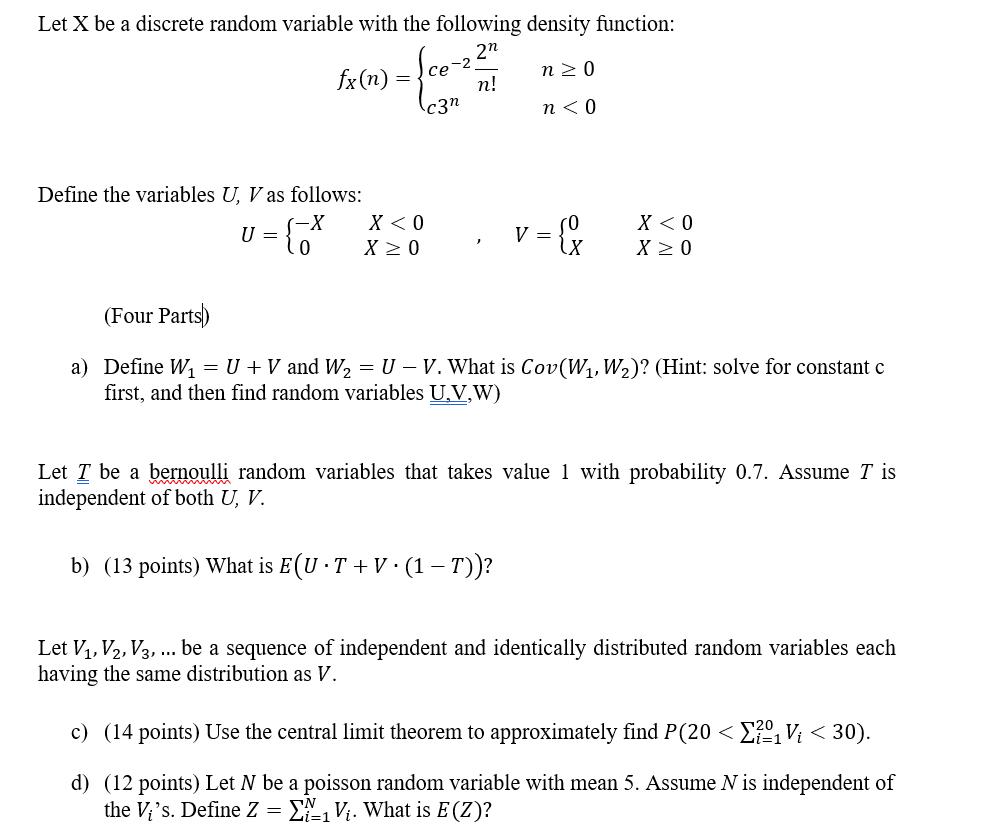Question
Let X be a discrete random variable with the following density function: fx(n) = Sce-2: 2n n! n O c3n n < 0 Define

Let X be a discrete random variable with the following density function: fx(n) = Sce-2: 2n n! n O c3n n < 0 Define the variables U, V as follows: (-X U = 0 X < 0 X 0 V = = {x X < 0 X O (Four Parts) a) Define W = U + V and W = U-V. What is Cov(W, W2)? (Hint: solve for constant c first, and then find random variables U,V,W) Let I be a bernoulli random variables that takes value 1 with probability 0.7. Assume T is independent of both U, V. b) (13 points) What is E(U T +V (1 T))? Let V1, V2, V3, , ... be a sequence of independent and identically distributed random variables each having the same distribution as V. c) (14 points) Use the central limit theorem to approximately find P(20
Step by Step Solution
There are 3 Steps involved in it
Step: 1

Get Instant Access to Expert-Tailored Solutions
See step-by-step solutions with expert insights and AI powered tools for academic success
Step: 2

Step: 3

Ace Your Homework with AI
Get the answers you need in no time with our AI-driven, step-by-step assistance
Get StartedRecommended Textbook for
Elementary Statistics
Authors: Neil A. Weiss
8th Edition
321691237, 978-0321691231
Students also viewed these Finance questions
Question
Answered: 1 week ago
Question
Answered: 1 week ago
Question
Answered: 1 week ago
Question
Answered: 1 week ago
Question
Answered: 1 week ago
Question
Answered: 1 week ago
Question
Answered: 1 week ago
Question
Answered: 1 week ago
Question
Answered: 1 week ago
Question
Answered: 1 week ago
Question
Answered: 1 week ago
Question
Answered: 1 week ago
Question
Answered: 1 week ago
Question
Answered: 1 week ago
Question
Answered: 1 week ago
Question
Answered: 1 week ago
Question
Answered: 1 week ago
Question
Answered: 1 week ago
View Answer in SolutionInn App



